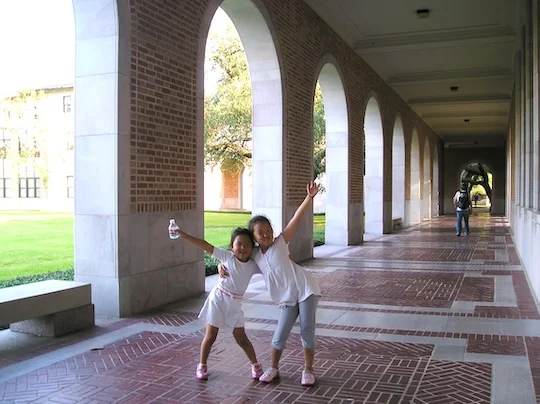
Rice University alumna Minjung Kim is one of 30 recipients of , a merit-based graduate school program for immigrants and children of immigrants.
The highly selective award recognizes fellows “for accomplishments that show creativity, originality and initiative [and for] the potential to make meaningful contributions to the United States” in their field of study. Each awardee receives up to $90,000 in funding to support their graduate studies at institutions across the U.S.
“This fellowship is a unique experience from the very start — not only did it require me to think critically about the impact I will have in my field, but it also made me contextualize my work within my experience as an immigrant,” Kim said. “The Soros fellowship validates the struggles of new Americans while simultaneously highlighting our accomplishments.
“My empathy and passion to build a more equitable society comes from transcending cultural and language barriers between my Korean heritage and being a new American. But more importantly, the profound understanding of the sacrifices that our families made gives us a unique lens through which we view society.”
Kim was born in Seoul, South Korea, and immigrated to the U.S. with her parents when she was 7. Her interest in music ⎯ she played the piano, gayageum (a traditional Korean instrument) and cello ⎯ had Kim spending a lot of time at the Shepherd School of Music growing up.
“I fell in love with Rice as a young kid, so I was really excited to start my undergraduate journey in 2018,” Kim said. “I graduated in 2022 with a B.S. in chemical and biomolecular engineering and a B.A. in chemistry. What I appreciate the most about my Rice experience is that it helped me contextualize my studies beyond the lectures.”
Programs such as (formerly Urban Immersion/Civic Owlets) and coordinated by Rice’s provided Kim with the opportunity to become civically engaged and aware of complex social issues and the multitude of factors at play shaping communities and individual histories alike.
“This understanding is crucial in order for science and engineering to have a real impact on the world,” Kim said.
Kim used this insight to guide her involvement in outreach activities and service roles during her time at Rice, including as part of the Rice Emergency Medical Services, Owlchemy, Rice Catalyst, Peer Career Advisor, Design for America, O-week, the chemical and biomolecular engineering undergraduate board and more. Her research was likewise motivated by the desire to drive meaningful change. Her work with focused on , nanoparticles that can be deployed in applications in catalysis, optics and drug delivery. Another project carried out under the mentorship of explored of “forever chemicals.” While at Rice, Kim was also the recipient of a National Science Foundation Graduate Research Fellowship.
“If I had to summarize what makes Rice so special, I would say it was the people that I met there,” Kim said, adding that Rice’s “culture of care” is manifest in the history of interactions and relationships she built during her undergraduate journey.
“During my junior year, my dad was diagnosed with pancreatic cancer, and I could not have finished my degree without the financial support from Rice, the mentorship and guidance I received, and most importantly without my friends’ and professors’ understanding,” Kim said. “I wouldn’t be where I am without them — their kindness and patience were the silver lining that helped me navigate through difficult times, and they are my support system that still empowers me to this day. Rice truly has a special place in my heart.”
Kim is currently pursuing a Ph.D. in chemistry at Northwestern University, researching how interactions between metal-organic frameworks and metal nanoparticles can be used to decrease the energy requirement of direct air capture technologies.
“In the future, I hope to become a professor with a research group focused on photocatalysis for environmental remediation,” Kim said.
According to , the 2024 Paul & Daisy Soros Fellows join a distinguished community of past recipients, including U.S. Surgeon General Vivek Murthy, who is the country’s first surgeon general of Indian descent and helped lead the national response to Ebola, Zika and the coronavirus; lawyer Julissa Reynoso, who serves as the U.S. ambassador to Spain and Andorra; Damian Williams, who is the first Black U.S. attorney for the southern district of New York and serves as chair of the attorney general’s advisory committee; and composer Paola Prestini, who was named by NPR as one of the “Top 100 Composers in the World” and plays on major stages across the world.
“I think this shared experience among all fellows is what makes this fellowship so empowering: It is a reflection of the new American experience and a representation of how immigrants are actively shaping society,” Kim said. “I am so excited to be a part of this community, and I can’t wait to meet everyone at the fall conference in October!”
